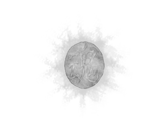Silver Phoenix (8 page)
Authors: Cindy. Pon

She was certain he lied about the debt, and although she could have read everything written in that scroll, it would not have changed the situation. Master Huang fraternized with all the officials in their small town, plying them with 25
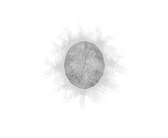
Cindy Pon
wine and gifts. It was his word as a powerful merchant against theirs, two helpless women. Without Father, there was no one to protect them.
Master Huang was rich and did not need more money. He wanted her . . . to make a son for him. The thought brought a sour taste to her mouth, a mixture of panic and fury. She would leave home before ever stepping into his bedchamber. She could go look for her father and bring him back.
She wanted to both laugh and cry—the idea was ludicrous.
But she refused to stay, to suffer that brute’s bullying.
Mother would be so worried . . . but it would free her from Master Huang’s manipulations. He knew they had no money. And there would be one less mouth to feed.
In the late hours, as the crickets chirped outside her window, Ai Ling sat on her bed, a packed knapsack beside her, and surveyed the cozy room by lantern light. Taro climbed in to join her. He nuzzled her hand, tilted his head to have his chin scratched.
“I’m leaving, Taro, to bring Father back. You’ll have to look after Mother while I’m away.” She stroked the short gray fur down his back and trailed her fingers along the tail. “I’ll miss you.” She kissed the spot between his pointy ears.
Yet she didn’t move from her bed, feeling her heart ham-mer wildly. She grasped the jade pendant in her hand. Was she doing the right thing? Should she be the dutiful daughter, offer herself to Master Huang, and take the burden off her mother?
26

S I LV E R P H O E N I X
Ai Ling couldn’t do it.
She picked up her ink stick and slowly ground it against the square stone. What could she say to Mother to make her understand? After a few moments, with a trembling hand, she dipped her brush and wrote two sentences in clear, simple script.
I have gone to search for Father. Do not worry for me.
She signed her name and placed the ink stone over the small note. She hoped her mother could decipher the simple characters. And if she couldn’t, Master Huang would.
She blew out the lantern and slid the lattice panel shut behind her. The flat-faced mutt next door erupted in wild barks, and Ai Ling froze, her nape damp with sweat. Silence returned as she hurried past her mother’s dark quarters, the tears fl owing freely now.
Forgive me, Mother.
She eased the courtyard door open and stepped into the silent alley. She dared not look back; Ai Ling walked as fast as she could toward the moonlight. And away from everything she had ever known and loved.
27
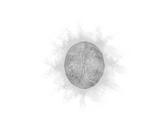
Ai Ling traveled onward through the night, guided by the half moon. The evening air was pleasant, still warm from the heat of the day. Yet she walked with her arms folded tightly around her, the hairs on her neck rising each time she heard the rustle of leaves or soft scrape of dirt. Ai Ling did not have the courage to look back, imagining dark shapes following her—Master Huang on a horse in pursuit or even lost ghosts, seeking the warmth of a living being.
She cursed herself for ever reading
The Book of the Dead
. She had found it just before her thirteenth birthday, hidden near the back of her father’s desk drawer, while searching for a new ink stick. Father had discovered her crouched over the 28

S I LV E R P H O E N I X
enormous book, riveted. He had slammed it shut, forbade her to read it. She had never seen him so angry. Ai Ling had stumbled across the book again months later, this time tucked on the highest shelf, hidden behind other volumes.
She pulled it down, knowing her father wouldn’t be back from his tutoring for hours. It was filled with tales of strange creatures. Truth or myth, she knew not. But the descriptions fascinated as much as revolted her. She’d studied it on the sly for years, and was being punished for her transgression this shadow-fi lled night.
She trudged on until the world began to take shape, dawn defining her surroundings. Her feet ached and her head throbbed. Exhausted, she finally curled up behind a hedge on the side of the dirt road and fell asleep, just as all else was waking up around her.
The sound of clopping hooves woke Ai Ling. She sat up and saw the rear of the powerful animal. A man was astride the horse’s back, and Ai Ling crouched behind the hedge until the road was deserted. She brushed off her clothes and followed him. He was most likely headed to the next town.
Her stomach rumbled. By the height of the sun, it was near midday, and she hoped for a hot meal. She had a handful of coins saved. Mother had surprised her with birthday cash wrapped in a red satin pouch. She had found the gift resting against a sweet bean bun by her 29
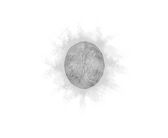
Cindy Pon
pillow on the morning of her seventeenth birthday.
She guessed it would take at least eighteen days to reach the Palace of Fragrant Dreams, assuming she did not become lost along the way. Ai Ling took a long swallow of water from her sheepskin flask and quickened her pace, imagining the dishes at the restaurant where she would soon dine.
Within the hour, she caught sight of the tall mud-colored walls surrounding Qing He. The gates to the city were wide open and kept by two guards. The tall one with a beaklike nose studied her with curiosity, while the other, more rotund guard did not bother to glance up. She released a long breath after she passed through the gates.
The main street clamored with throngs of people. There were other girls alone among the crowds. Their simple dress and unadorned hairstyle—braids wrapped tight on each side of the head—were clear indications of their servant status. Ai Ling had dressed plainly as well, her one long braid tucked inside the back of her tunic.
Qing He was bigger than the town she had grown up in.
She jostled against others as she took in the storefronts of textile shops, bolts of silks and brocades gleaming in the sunlight. She ran her fingers along the smooth materials, imagining what her mother would create with the fabric.
She walked past the stationery store and quelled the urge to wander through it, knowing there would be endless rolls and sheaves of rice paper, bound books and journals, and elaborate seals to add to her small collection. Her father had 30
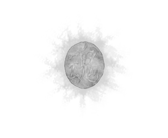
S I LV E R P H O E N I X
taken her to the stationer in their town on many occasions.
For her thirteenth birthday, they had selected a rectangular chop made of soapstone with a dragon perched on top.
Her father had her name carved on the bottom. It became a tradition, the day of her birthday, to visit the stationer with Father and choose another seal. She had received one for each birthday thereafter, except this last one.
Turning a corner, she nearly collided with a woman balancing two baskets of eggplants on each end of a pole slung across her shoulders. The path immediately narrowed, and the noise of hawkers selling their goods simmered to a hum.
The smell of steamed buns and dumplings drew her. The wooden sign hung above the restaurant doors read LAO
SONG. She climbed the stone steps and went inside.
The enormous size of the place surprised her. It was two stories, and many patrons sat above on the second-floor balcony. A rowdy midday crowd crammed the first level.
She had difficulty finding a table but finally chanced on one tucked in the back corner, with a view of the entire dining area. Dishes from the previous patron’s meal remained.
A server girl who looked her own age approached to clear the dirty dishes. She wore her one braid coiled on the top of her head and a plain pink tunic over gray trousers.
“What’d you like?” The girl barely fl icked a look at her.
“Steamed dumplings, please. And some tea.” Ai Ling pressed her palms to her empty stomach.
Her server wiped the table clean with leftover tea and 31
